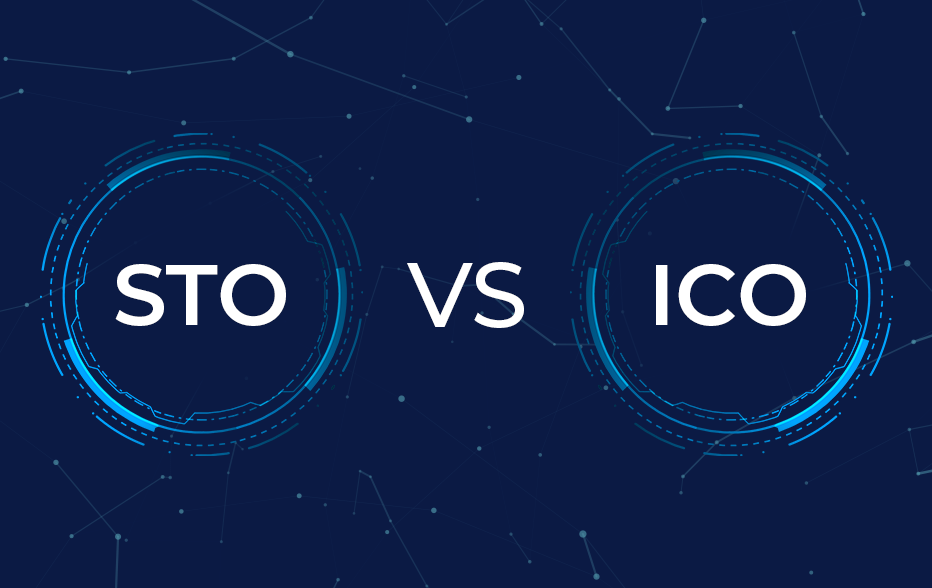Security Tokens vs Utility Tokens: Similarities and Differences

With the rise of blockchain technology, it can be difficult to keep track of the various types of digital assets available. Crypto and security tokens are two key players in the digital asset landscape. Both live on the blockchain and can be traded 24/7/365, yet security and utility tokens have distinct characteristics that set them apart. Understanding the differences between these two tokens is essential for any investor looking to get involved in token trading.
What are Security Tokens?
Security tokens are a type of digital asset that represents a real-world asset. This could be a company’s equity, a debt instrument, or even a commodity. Security tokens are regulated by governments and must adhere to various laws, including Know Your Customer (KYC) and Anti-Money Laundering (AML) regulations. Security tokens are backed by real-world assets, which can be traded like securities on traditional exchanges.
Security tokens offer a number of advantages over traditional securities. They offer greater transparency, as all transactions are recorded on the blockchain. Additionally, security tokens are more secure than traditional securities, as they are protected by cryptography and distributed ledger technology.
What are Utility Tokens?
Utility tokens are also a type of digital asset, but they do not represent any real-world asset. Instead, they are generally used to access goods or services through a specific platform. For example, the most popular utility token, Ether, is used to pay for gas on the Ethereum network.
Another use-case of a utility token is staking for consensus. Proof of Stake networks like Ethereum, Solana, and Polygon allow token holders to stake their utility tokens in order to validate transactions on the blockchain. Some platforms. may offer tokens as rewards for completing tasks or providing feedback.
Similarities Between Security Tokens and Utility Tokens
The same underlying technology that powers utility tokens is also the home of security tokens. Both asset classes are traded 24/7 on the blockchain. Both security and utility token transactions are settled instantly, cutting significant costs for market participants.
Difference Between Security Tokens And Utility Tokens
- Regulation Status
Utility tokens are not generally regulated. Although some, like Bitcoin, don’t fall under the umbrella of securities, many unregulated utility tokens and cryptocurrencies are in fact unregistered securities. Security tokens, on the other hand, are classified as a security and are generally registered as such with regulators like the SEC. Therefore, security token holders are afforded the same rights, obligations and protection as owners of a stock, bond or any other traditional security.
- Trading Venue
Cryptocurrency trading is offered by several exchanges, each with their own set of rules. This differs from the trading of security tokens which by their very nature are deemed to be securities and therefore are regulated and therefore, can only be traded on a licensed Alternative Trading Systems (ATS) like INX.
- Dividends
Crypto tokens are unregulated and therefore, can’t offer dividend payments or they risk getting classified as an unregistered security. At least not legally. Security token can represent an investment contract promising potential for income. Such income may come in different shapes and forms, such as revenue share amongst token holders.
- Whitelisting
While crypto tokens can be sent and received by anyone, security tokens can only reside in whitelisted wallets. A whitelisted wallet is one that has been approved by a KYC process to participate in a registered security transaction.
Implications of Regulation
One of the main implications of security token regulation is that investors must adhere to various laws and regulations when trading security tokens. This includes laws such as KYC and AML, which require investors to provide personal information in order to trade security tokens. In addition, government regulations can also limit the number and type of investor who can invest in a particular security token.
Investing in Security Tokens
Security tokens are regulated by governments, which offers investors certain protections when investing in security tokens and provides more transparency when evaluating the underlying asset’s performance. Regulatory compliance also allows security tokens an ability to offer dividends and voting rights to investors. Additionally, security tokens can be traded on secondary markets, allowing investors to quickly and easily liquidate their investments.

Potential for Security Token Market Growth
The growth of the security token market has the potential to revolutionize the way securities are traded. Security token offerings (STOs) allow companies to raise capital in a fraction of the time it takes to conduct an initial public offering (IPO). In addition, STOs also offer investors an opportunity to gain exposure to assets and projects that would normally be inaccessible to them. All these reasons combined led the security token market to grow 14x in 2022, the most of any digital asset class.
Security tokens are also beneficial for companies because they provide a more efficient way to manage and track ownership of assets. This can help reduce the cost of compliance and reduce the risk of fraud. Furthermore, security tokens can be used to create a more liquid market for privately offered securities, allowing investors to easily buy and sell assets.
Risks Associated with Investing in Utility Tokens
One of the main risks associated with investing in utility tokens is their lack of regulation. As utility tokens are not regulated by governments, there is no guarantee that they will retain their value over time. In addition, utility token projects can often fail due to lack of adoption or technical issues. Therefore, investing in utility tokens should be done with caution.
Furthermore, utility tokens are often subject to high levels of volatility, meaning that their value can fluctuate significantly over short periods of time. This can make it difficult to accurately predict the future value of a utility token and can lead to significant losses if the token’s value decreases. Additionally, utility tokens are often subject to scams and fraudulent activities because they are not regulated, so it is important to do thorough research before investing in any utility token.
The INX Way
Navigating the digital asset landscape can be complex, and nobody should go at it alone. As the only venue that offers both security tokens and utility tokens for investment, INX is committed to lifting the veil of mystery from this industry. That’s why we put together ‘The INX Way,’ a book about security tokens with all their nuances and intricacies. Sign up to get your hands on an early copy at inx.co
David Azaraf January 30, 2023
Crypto enthusiast, help businesses plug into the token economy





